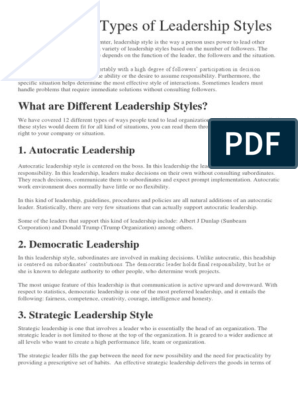
Structured Leadership: Effective Organizational Practices
Strategic Precision: Unveiling Organized Leadership Practices
In the fast-paced and ever-changing landscape of modern business, effective leadership demands a strategic and organized approach. Organized leadership practices form the backbone of successful companies, enabling them to navigate challenges, drive innovation, and foster a culture of excellence. Let’s delve into the key aspects of organized leadership that contribute to sustained success.
Foundations of Organized Leadership: Clear Vision and Goal Alignment
Organized leadership begins with a clear vision that provides a roadmap for the organization’s future. Leaders articulate this vision, ensuring that it aligns with the company’s values and mission. Furthermore, they establish specific, measurable, and achievable goals that serve as milestones along the path to realizing the overarching vision. This clarity of purpose fosters alignment throughout the organization.
Organized Leadership Practices Hub
Explore a comprehensive guide to organized leadership practices at Organized Leadership Practices. This hub offers valuable insights and resources for leaders aiming to enhance their organizational effectiveness.
Structured Decision-Making Processes: Enhancing Efficiency
Organized leaders recognize the importance of structured decision-making processes. They establish frameworks that guide decision-making, ensuring that choices align with the organization’s objectives. This structured approach enhances efficiency by streamlining decision-making, reducing ambiguity, and providing a basis for evaluation and improvement.
Effective Communication Strategies: The Art of Transparency
Communication is a cornerstone of organized leadership. Leaders employ effective communication strategies to convey the organization’s vision, goals, and expectations clearly. Transparency is key, and organized leaders foster an open dialogue that encourages feedback, collaboration, and a shared understanding among team members.
Streamlined Workflow and Process Optimization: Operational Excellence
Organized leadership practices extend to optimizing workflows and processes. Leaders analyze existing procedures, identify bottlenecks, and implement streamlined processes that enhance efficiency. Operational excellence is achieved through continuous improvement, where leaders and teams collaborate to refine and optimize workflows for maximum productivity.
Strategic Delegation: Empowering Teams
Organized leaders understand the significance of strategic delegation. They assess the strengths and expertise of their team members and delegate responsibilities accordingly. This not only empowers individuals within the organization but also ensures that tasks are aligned with the skills of the team members, fostering a culture of accountability and ownership.
Technology Integration for Efficiency: Embracing Digital Tools
In the digital age, organized leaders leverage technology to enhance efficiency. They embrace digital tools and systems that streamline communication, project management, and data analysis. The integration of technology not only improves operational efficiency but also positions the organization to adapt to technological advancements in the ever-evolving business landscape.
Continuous Learning and Adaptability: A Growth Mindset
Organized leadership is synonymous with a commitment to continuous learning and adaptability. Leaders foster a growth mindset within the organization, encouraging employees to embrace new ideas, acquire new skills, and adapt to changing circumstances. This commitment to learning and adaptability positions the organization for long-term success in a dynamic environment.
Structured Performance Evaluation and Feedback: Nurturing Growth
Organized leaders implement structured performance evaluation processes. They provide constructive feedback, acknowledging achievements and identifying areas for improvement. This structured approach to performance evaluation nurtures individual and collective growth, aligning employee development with organizational goals.
Crisis Management and Contingency Planning: Preparedness
Organized leaders understand the importance of crisis management and contingency planning. They proactively identify potential risks and develop contingency plans to address unforeseen challenges. This preparedness ensures that the organization can respond effectively to crises, minimizing disruption and maintaining operational resilience.
Conclusion: Orchestrating Success Through Organized Leadership
In conclusion, organized leadership practices are instrumental in orchestrating success within modern organizations. From establishing a clear vision to implementing structured decision-making processes, fostering effective communication, and embracing technological advancements, organized leaders create a foundation for sustained excellence. By prioritizing efficiency, adaptability, and continuous learning, these leaders navigate complexities and position their organizations for growth and resilience in an ever-changing business landscape.



